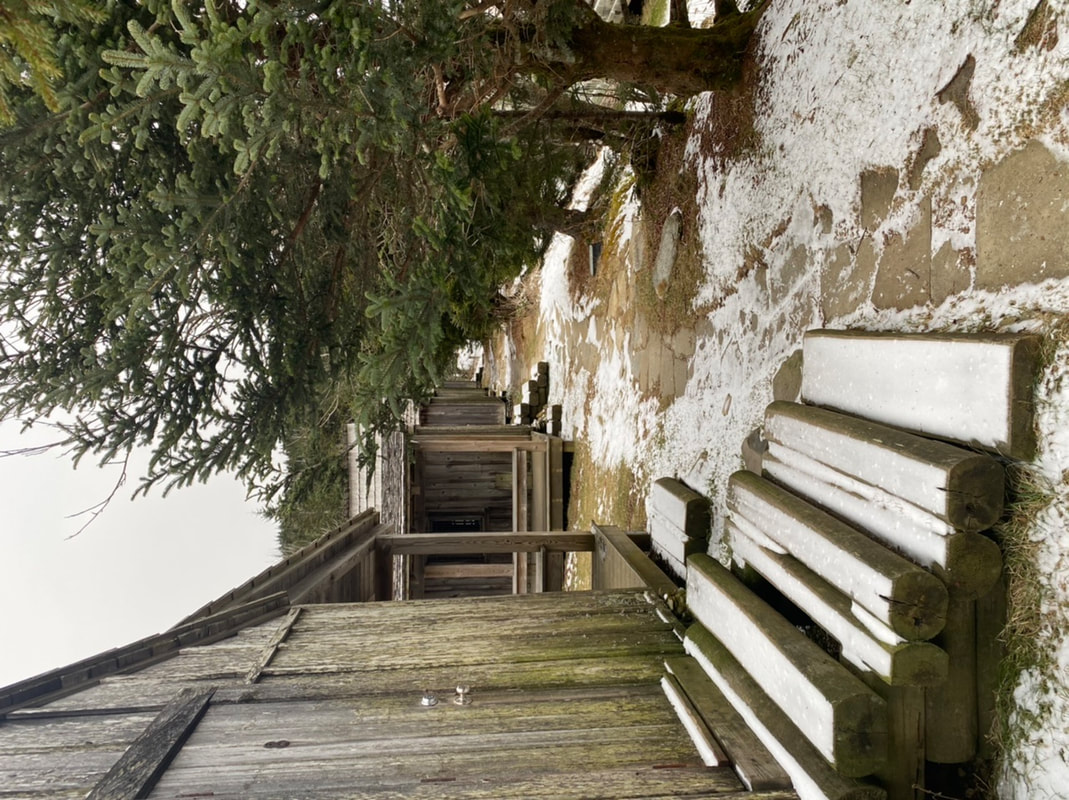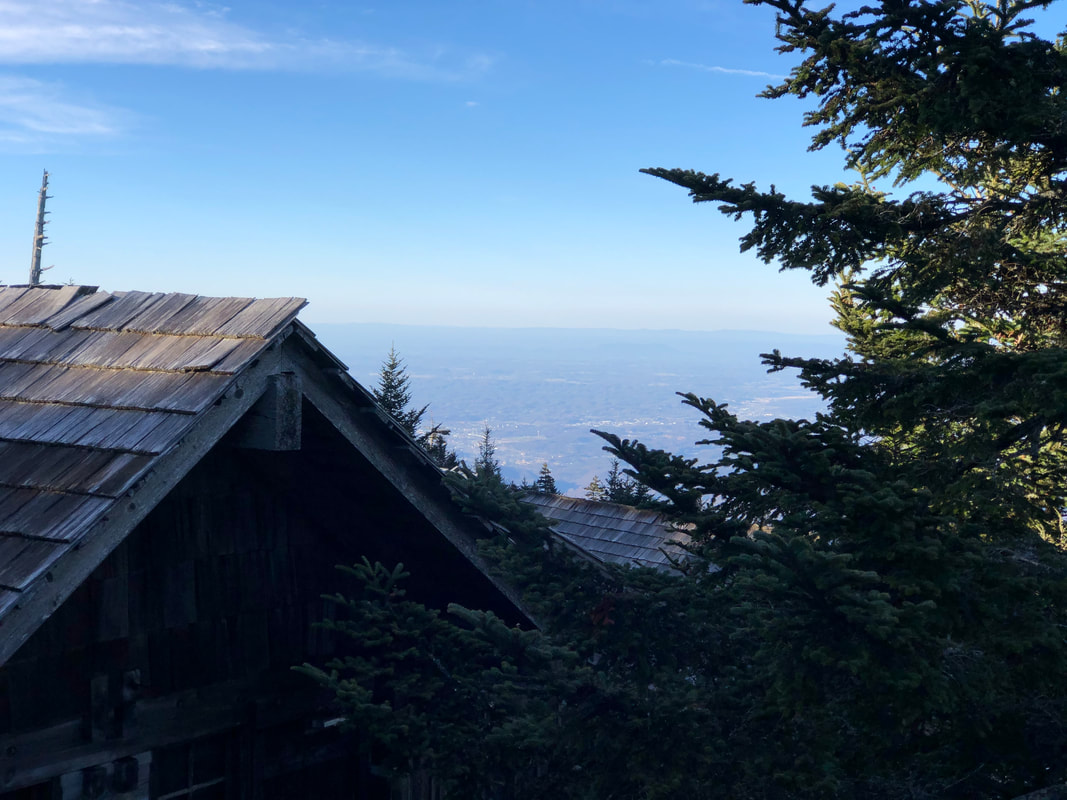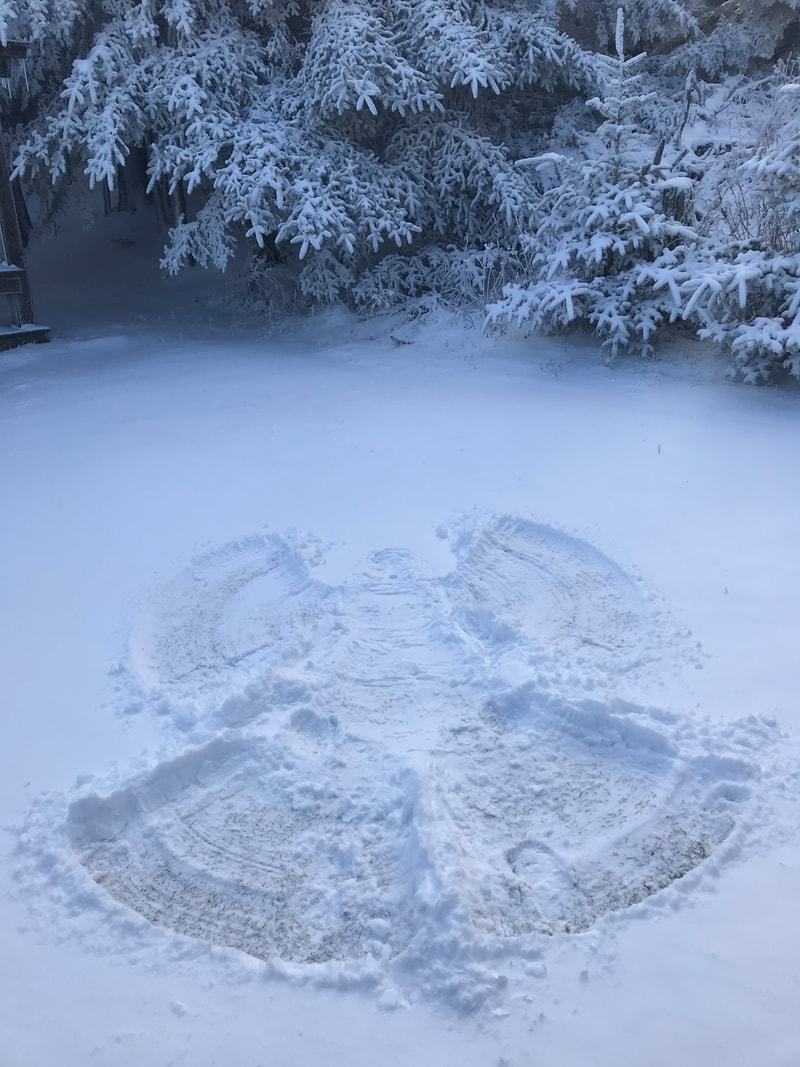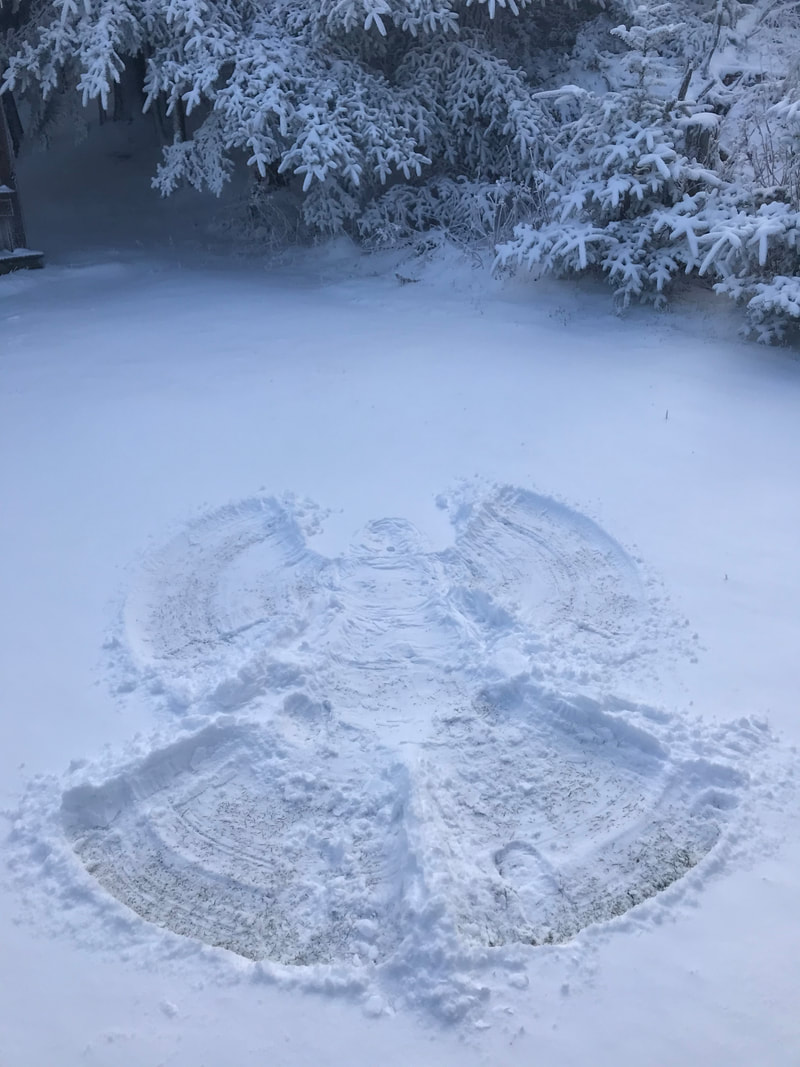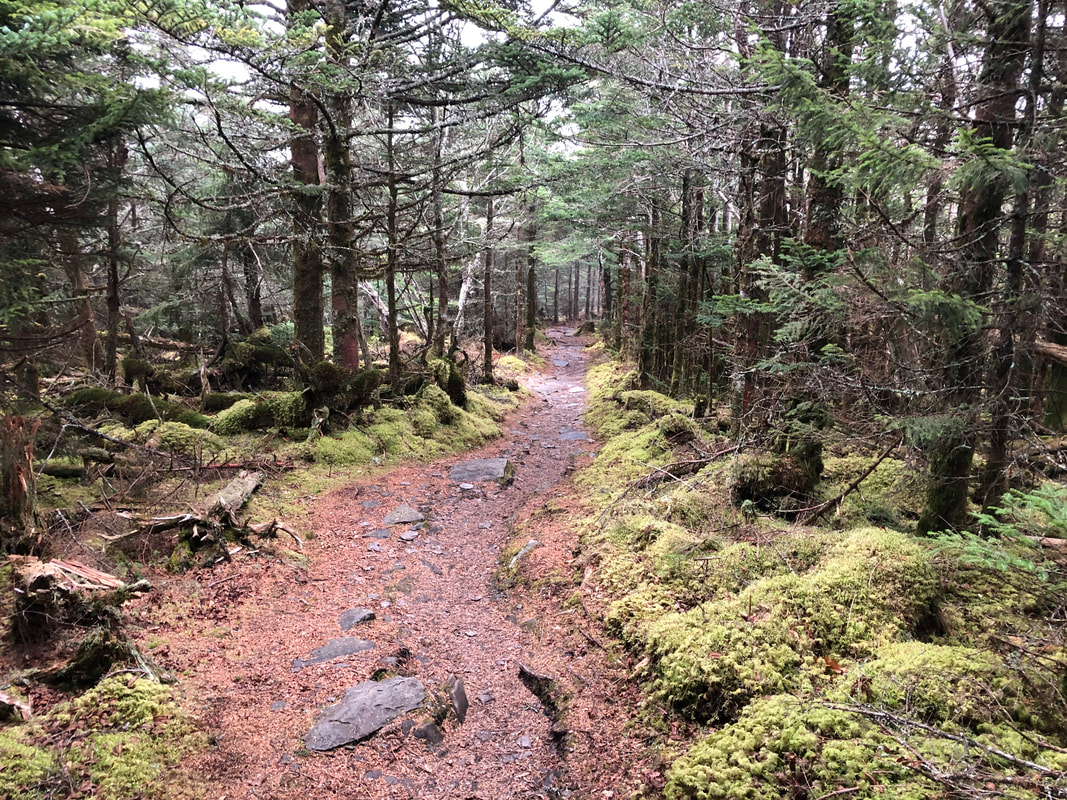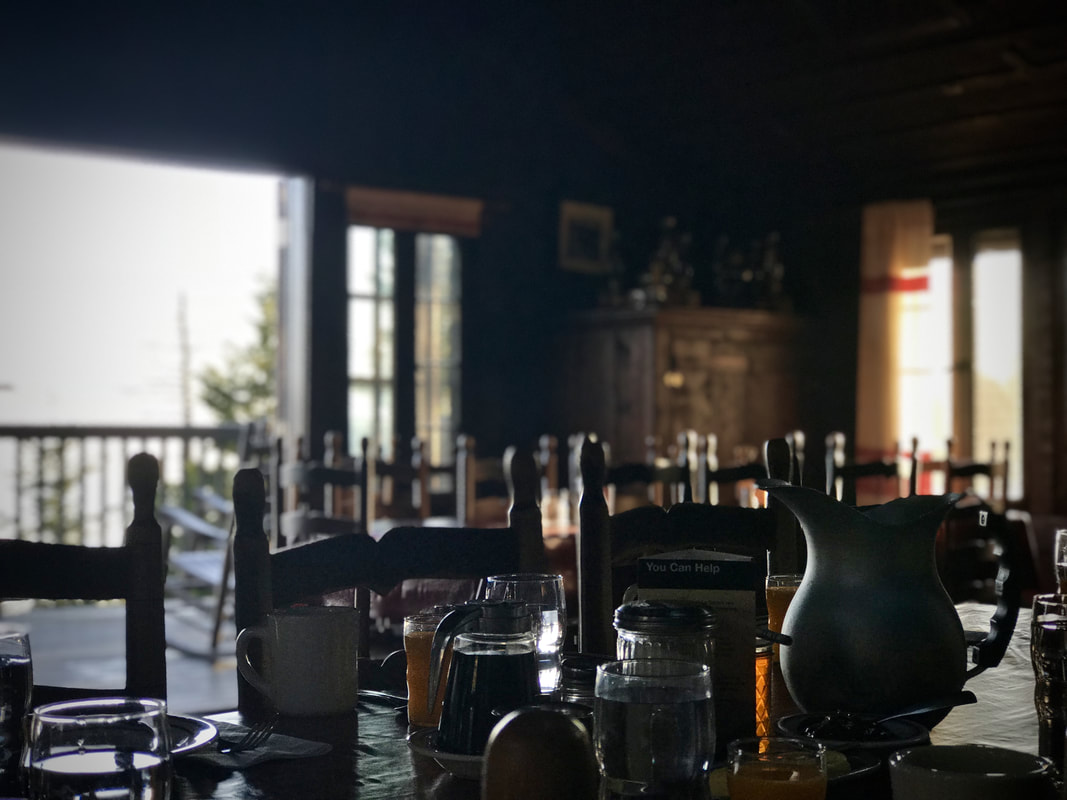|
Hello to all of you. I hope you're enjoying a wonderful autumn weekend. We've seen far more clouds than sun thus far Saturday, though the forecast is favorable for LeConte Lodge and I've heard it's pretty down below. However, there's been no precipitation today or yesterday for that matter. The beautiful sun pushed us up to a high of 55 Friday. The overnight low sank to 35 degrees.
We've already seen a healthy influx of dayhikers in addition to our full house of overnight guests Saturday. I expect this October weekend will be busier than the previous two this month. Yesterday I tried to answer a few questions from guests about the length of our season and offseason. Today, I'll fill you in about what I'm planning for this winter, and what I got into last offseason. In early December, I'm planning on heading back to Yellowstone National Park for my third season (two winters as a guide and snowcoach driver and one summer as a horse wrangler). Like the Smokies, Yellowstone is a world-class treasure any time of year, but the winters are tough on a bald man. My favorite animal of all, the bison, is still in residence during the winter. As a snowcoach guide/driver you have to be careful to avoid piles of frozen bison manure hidden on the snow road. On a frigid Yellowstone morning, those piles freeze hard enough to bend the axles on your snow treads if you're not being wary. I'm looking forward to it, but also recall my last offseason fondly when the temperature was decidedly warmer. Last winter I traveled to Uganda to do some volunteer work and visit with local folks in a part of Africa most tourists never see. I purposefully wanted to avoid prepackaged tours, so I independently set up a volunteer stay with a local man in Mbale, Uganda who is a radio DJ (a pretty good gig in Uganda). He's a funny character who knows everyone in the city and can set you up to help out where your interest leads you. I split my weeks volunteering with three different efforts. My favorite was working with a farmer who is branching out into raising Arabica coffee as a cash crop. This farmer has three kids and struggles mightily to afford sending them to primary school. He taught me most of the ins and outs of picking and processing his coffee without machinery. I'd volunteer my time, and the money he made from selling the coffee helped pay school fees for his kids. I loved working at the farm. The coffee work was quite labor intensive, but not brutally difficult. I could pick the ripe beans, smash the hulls and prepare them for drying on an old feed sack under the East African sun. When dry, I would wrap up the beans in a feed sack and repeatedly pummel them with a wood stick until I separated the papery husks from the bean. We would sit outside under the mango tree sorting out the good "green" beans suitable for roasting. The others we'd flick off the table for the chickens to eat. I'd collect kindling on the farm and start a fire in the mud cooking hut to roast the beans in a steel pot, stirring with a wooden spoon to determine medium or dark roast. For lunch break we'd eat bananas, or even better yet, the farmer would climb 25 feet up in his avocado tree and pluck one big as your head--best I've ever eaten. We'd eat the avocado with a little salt and mix our coffee I'd just roasted and ground with homegrown ginger root and lemongrass. I also visited HIV patients who were struggling to regain their health, lives and jobs after tough battles. I'd go to the market and buy them fruit for nutrition (you could buy a pineapple, two or three mangoes and some oranges for about $2 U.S.). The visits weren't medical in nature, though the fruits offered valuable nutrition. I'd visit the patients in their mud-brick homes, and we'd sit around and swap stories. Two of my patients loved playing a Ugandan card game. They had met in the HIV clinic, had four kids (none of them HIV positive) and taken on their struggling neighbor's child to raise, too. On the day of my last visit before I returned home, they found a different neighbor stabbed to death, and they, just like my American parents would have, didn't sleep well the night before and held their kids a little tighter. A different patient was the equivalent of a moonshiner, though her "local alcohol" was legal. She'd make it out of millet in a multistage process which included burying it in the ground for eight days. She was a delightful lady who'd lived a hard life. She had seven children, the youngest of which was also HIV positive and taken from her when she was bedridden for a time. She was feeling better, back to work even, but her youngest child still lived out in a different village and that absence ate at her. I'd help her carry the heavy mash buckets from the brewhouse to the shed where she served her customers. I'd always buy a little bit at the local rate to drink, too, while we played cards and covered the news of the neighborhood. I was quite the curiosity, as no one in that neighborhood had ever seen a white man working for an African woman. That local alcohol was served boiling hot, which was tough when the thermometer was pushing 95 degrees. I also visited a mud-walled school and would play with the kids one day a week. The kids were nice and would constantly touch my arms as they glistened with sunscreen because they'd never seen such a thing before. They never asked me to help teach English, though an Italian and Romanian I knew did help with that. When they heard me talk, they all assumed I was from Texas (which boils the blood of any true Tennessean). I tried to get out of town and see other things in the country during my weekends. I was able to see Sipi Falls after hitching a ride for $1 in the back of a flatbed dirt truck with 11 other Ugandans and a pleasant goat. I also whitewater rafted the headwaters of the mighty Nile River, getting dumped into the fiercest torrent I've ever seen (some of the class VI rapids we had to portage around). Our boat flipped, and I got sucked underwater about three times (figuring at least twice that LeConte Lodge would be hiring a new assistant manager while my body floated down to South Sudan). The rapids were such that I didn't get back to the boat for about 2/3 of a mile, and I kept looking pretty close for the eyes of the Nile crocodile welcoming me to the country. I was also able to take a poor man's safari trip during which I saw magnificent animals, including a hippopotamus standing on my porch eating grass which delayed my shower. The people all wanted to know about life in the U.S. Imagine how hard it is to explain LeConte Lodge to folks in Uganda with a completely different idea of America. "You walk five miles to work with no road. You don't have electricity or a bathroom in your house. In America?" They were interested to know that Mt. LeConte overlooked Dolly Parton's hometown. I heard Dolly's music several times booming out of hair salons and bars while walking around the streets of Mbale, which was quite a surprise. One last story, my last night in country was spent in a hostel in Kampala, the bustling capital city which I didn't like nearly as much as Mbale, where I worked. It was March 6, the anniversary of the fall of the Alamo, and I stopped by the bar to buy a Tennessee product to toast my fellow volunteers who paid such a dear price for Texas' independence in 1836. The bartender was a friendly fellow, and we visited about different things. Finally, he got comfortable enough to ask me about my t-shirt--a black shirt with an image of Johnny Cash backlit on the front. Pointing to Cash on my shirt, he asked "Is that Muammar Gaddafi?" Very quickly I said "No, that's Johnny Cash. He's passed away, but he was a great American country singer from my part of the country." The bartender replied, "Sure looks like Gaddafi." I reassured him, "No, certainly not Gaddafi. I'm no fan of Gaddafi. That's Johnny Cash, and he stood up for a lot of people down on their luck back home. Not Gaddafi." It's not a great idea to be walking around many parts of Africa with a hated dictator on your shirt. Thinking I had the situation cleared up I continued, "Cash is not Gaddafi, but, who knows, maybe Gaddafi had a good singing voice, too" and kind of laughed it off. The bartender replied, "No, he's just a dead dictator." It was a wonderfully rewarding, complicated and difficult trip. I saw things I can't forget--good and bad. Although I didn't exactly blend in with the populace physically, I was always well treated and think about the nice Ugandans I lived, shopped, worked, ate and visited with all the time. I think about them even more now, as I know they're scared about the Ebola epidemic even though it's far on the other side of the continent (Uganda is in East Africa). The world gets smaller all the time with unpredictable results. That's how my last offseason shaped up. I hope you can come up and visit LeConte Lodge before the crew begins the next offseason. Happy trails.
25 Comments
Ellen Waff
10/18/2014 07:17:30 am
What a wonderful tale! And, what a wonderful fellow you are! I feel privileged to have read your story....
Reply
Linda
10/18/2014 08:09:03 am
Lovely story even though I don't think I would want to travel to Africa right now. I'm planning on coming up to Leone on November 28. Does the caretaker sell the t-shirt that you can only get at the Lodge or am I just out of luck on getting that shirt.
Reply
High on LeConte
10/18/2014 03:22:43 pm
Linda,
Reply
Jenny B.
10/18/2014 10:23:19 am
What you did commands a lot of respect, though I know you didn't do it to win points from the outside world--you did it for your own reasons. As Edith Wharton said in "House of Mirth," there is such as thing as "the republic of self." I've traveled a lot around the globe but not too much in Africa. I've been to South Africa twice--the only redeeming feature is that my purpose was not to visit the usual tourist spots but to go to places important in the Boer War, an event that has special meaning for me.
Reply
Tracyg
10/18/2014 12:00:11 pm
You have certainly got to experience many things and have such a gift with writing that I can always draw a mental picture. Although I know that is not near the same as being there and experiencing it. Thank you so much for sharing. Have a blessed evening.
Reply
Ken T
10/18/2014 12:35:00 pm
Thanks for sharing !! Brought back a lot of memories for me.
Reply
Jenny B.
10/18/2014 01:12:37 pm
We have more bogus commenters here.It's really stupid.
Reply
RJnLA
10/18/2014 01:43:37 pm
Please explain Jenny b. Maybe I missed something in reading the comments.
Reply
Jenny B.
10/18/2014 02:04:08 pm
It's an instinct about these comments, especially after my experience of watching the comments in the winter in respect to JP. In this case, a very nice guy named Kent is a frequent commenter. I noticed that this time it was Ken T. with a sort of inane positive response that was not at all like what Kent would have posted. The problem with these imposters is they're not smart enough to say anything convincing. What they love to do is say something short and stupid as if that would make everything on this blog seem stupid. Probably no one other than me is convinced, but I see those pretenders--and you all pretenders are idiots. RJnLA, you would probably have to watch carefully especially through the winter to understand what I mean. I don't expect anyone to understand except the trolls.
Reply
RJnLA
10/18/2014 02:57:04 pm
I understand about the comments in the winter. It seems to get ugly at times and I tried to be peacekeeper a few times when it would get "snippy". As I recall, blog was shut down for extended periods the last 2 winters because it got ugly. I will repeat what I said then. Just ignore and don't reply to comments of the trolls.It only adds fuel to the fire.Just enjoy pictures, post and comments of the ones who truly love and enjoy these beautiful mountains we are BLESSED to share.
Scott
10/19/2014 12:44:58 am
Jenny, sounds like you are making an attempt at a thread hijack, much worse than an assumed troller making innocent comments. Your quote of Wharton and then your own personal account of travels to Africa for "non tourist" reasons is clearly a "look at me" statement. Have you been to the summit of Le Conte or are you yet another troller yourself?
Kent
10/19/2014 03:42:07 am
Scott, you obviously have not read enough on this blog or you wouldn't have made such insinuations about a valuable contributor to this forum. Jenny never posts to “hijack” a thread or conversation; merely to impart a thought or feeling about which she's passionate. You'll realize that in time.
Scott
10/19/2014 09:27:46 am
Valuable contributor or not, "insight" about someone that she does not know making a comment about some thing that bought back good memories is poor and a thread hijack in my opinion. Also, you are assuming (rather incorrectly I might add) that I have not spent enough time in this forum to pick up on something like this. That's why I don't comment on forums like this...people make judgements based on assumptions that are most likely incorrect and act like they are a subject matter expert.
Norma P.
11/3/2014 03:54:17 am
Jenny B. Did you ever think that Ken T and Kent are two different people? Why would you try and tear up every comment trying to find something you don't like. I think you are a JERK or to much time on your hands. Analyze that.
Jan
10/18/2014 02:40:43 pm
Loved hearing about your experiences in Uganda! What amazing memories you must have. I just can't imagine. Thank you for sharing some of it with us!
Reply
Jenny B.
10/18/2014 05:39:47 pm
RJnLA, I totally support your idea of ignoring trolls. The situation here is a little bit different. There are people who post comments that sound positive, like "Thanks for sharing!!" Why do I reject those as troll comments? Because (a) they impersonate folks who post sincere comments, and (b) they put up generic platitudes. This is different than folks who post trolllish points in open opposition to what most folks say in all innocence and honesty about their experience. These are not even trolls who express their ideas openly. This is a cowardly bunch who get their laughs from pretending to be sincere participants in the discussion. I must say that I SEE them and IDENTIFY what they are doing.
Reply
Debi
10/19/2014 01:03:28 am
Some great adventures for you. Nice to see how others live, to really appreciate what we have back home. Thanks for sharing Nathan.
Reply
Barbara Allen
10/19/2014 03:00:27 am
Nathan, Enjoyed your story. What year did you work as wrangler at YNP? I worked at Roosevelt Lodge in 2008. Loved going to the barn to see the horses and hang out with the wranglers.
Reply
High on LeConte
10/19/2014 09:10:37 am
Barbara,
Reply
Jenny B.
10/19/2014 03:30:44 am
Answer to Scott--yes, I have been to the top of LeConte countless times. I have climbed it off-trail by all the streams that drain its slopes. I didn't mean to be pretentious, it's just that I am reading that Wharton book right now and the idea of "republic of self" seemed perfect to describe a person who lives according to their own ideas and not to please others (that's the whole theme of the book). There is one other reason why I know "Ken T"'s comment was a fake. This person says "Brought back a lot of memories." Memories of Uganda? I don't think so.
Reply
Steve
10/19/2014 03:43:51 am
Random bogus comments and some "egos" make the site less enjoyable, no names mentioned.
Reply
John
10/19/2014 04:08:30 am
What a worthless rambling post nothing to do with the Mnt.
Reply
Jan
10/19/2014 05:00:10 am
Jenny- just to let you know, my "thanks for sharing" comment was not bogus, or my pretending to be interested in what Nathan was taking about. I am glad that he DID share his stories about his experiences in Uganda! I love learning about stuff like that. It is an interest to me on how people live and what they do in other countries, and the fact that he got to experience some of that, and shared that was awesome. So please don't include me in your little rant. Thank you. And thanks again Nathan!!! Any more cool stuff? I'm all ears! (Or eyes!)
Reply
Jenny B.
10/19/2014 05:11:31 am
Jan, your comment was wonderful and I had nothing to say against it. It was the fake "Ken T" comment that I was reacting to. I won't even bother trying to explain any more. 99% of you are great people. There is that 1% that does stupid stuff. I can see it but I guess no one else does. Goodbye.
Reply
Pam
10/29/2014 02:24:24 am
Nathan, what will you be doing this winter in Yellowstone? My Husband and I will be snowmobiling there in February.
Reply
Leave a Reply. |
LeConte LodgeWelcome to the official blog of LeConte Lodge. We hope you find the information provided here both helpful and enjoyable. Thank you for visiting the site, and we hope to see you on the mountain! Archives
June 2024
|
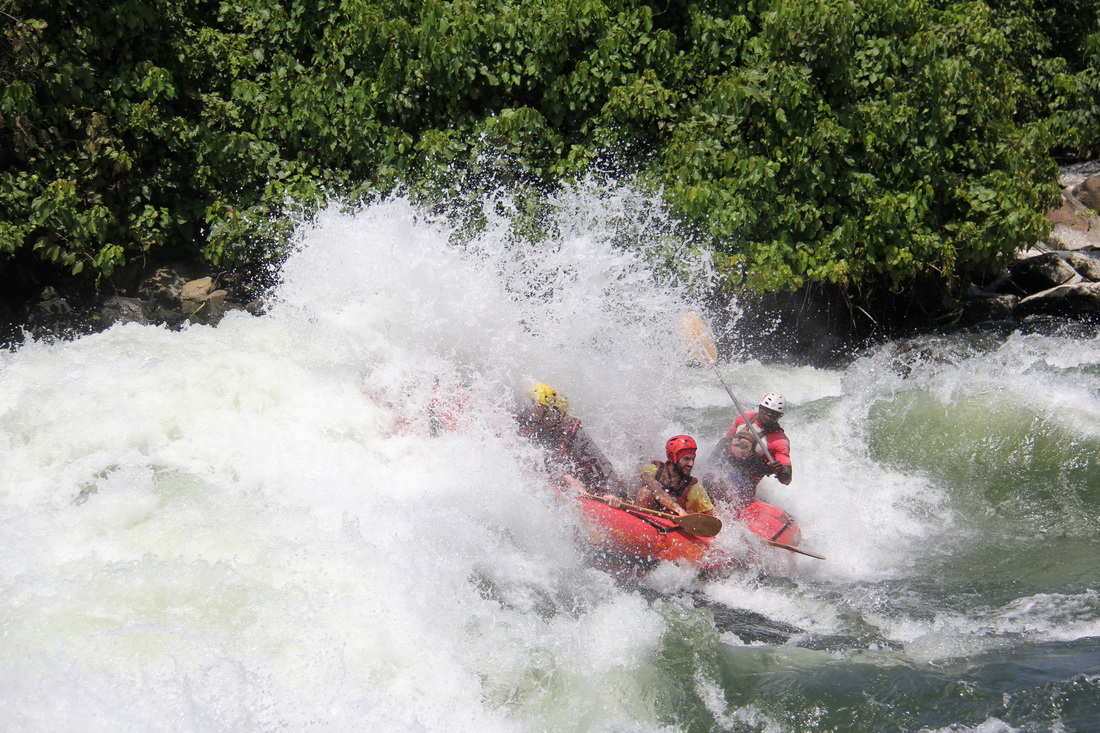
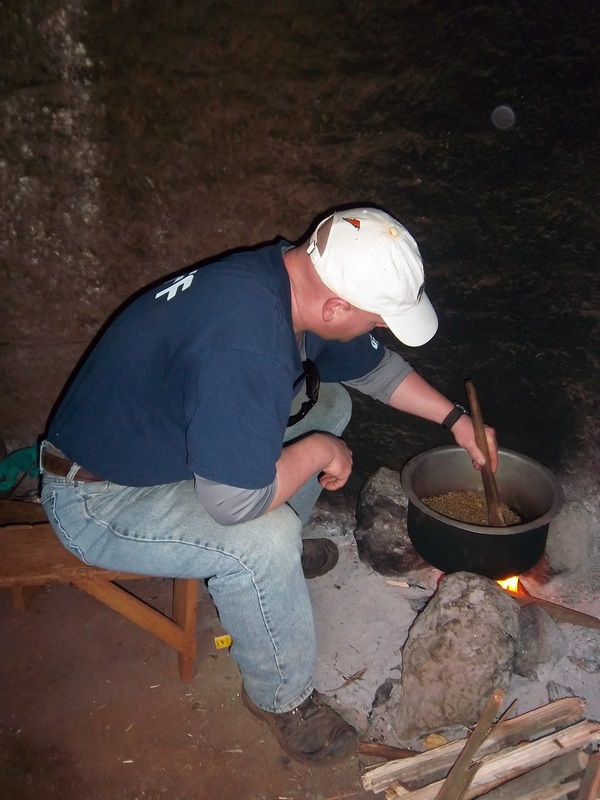
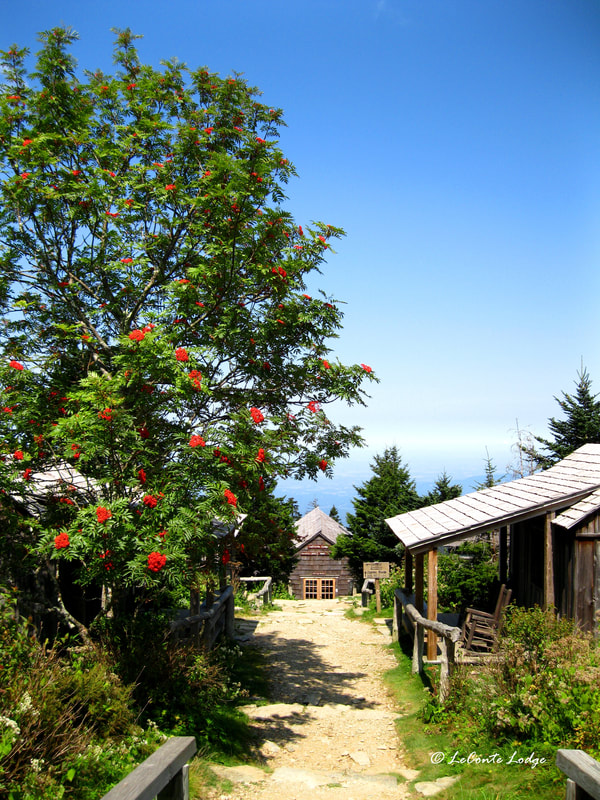
 RSS Feed
RSS Feed
